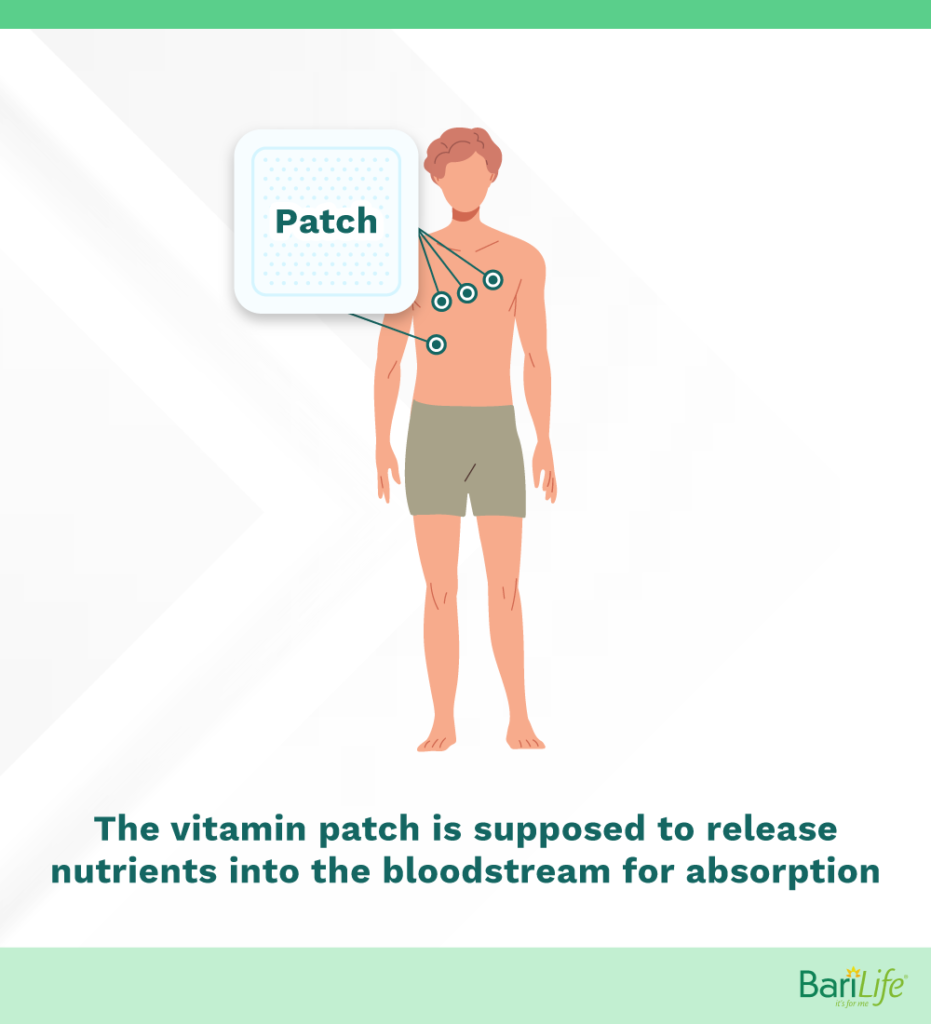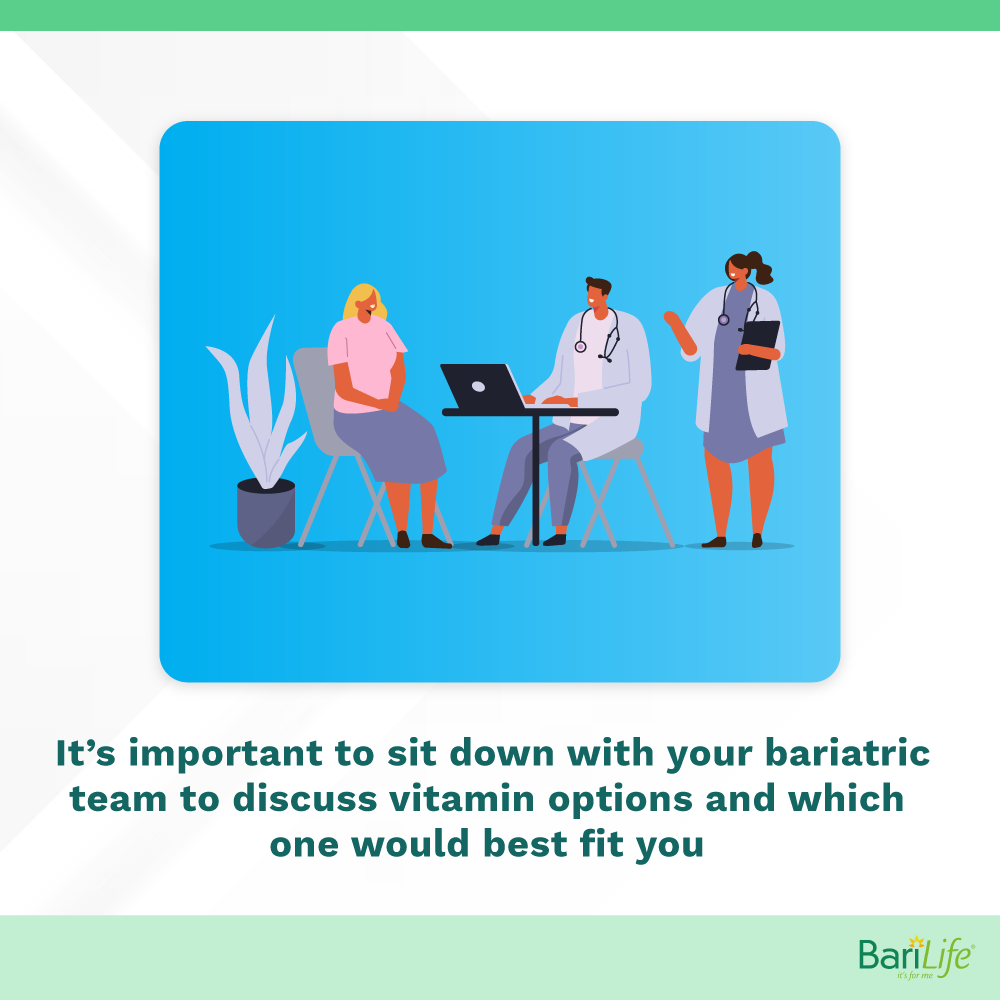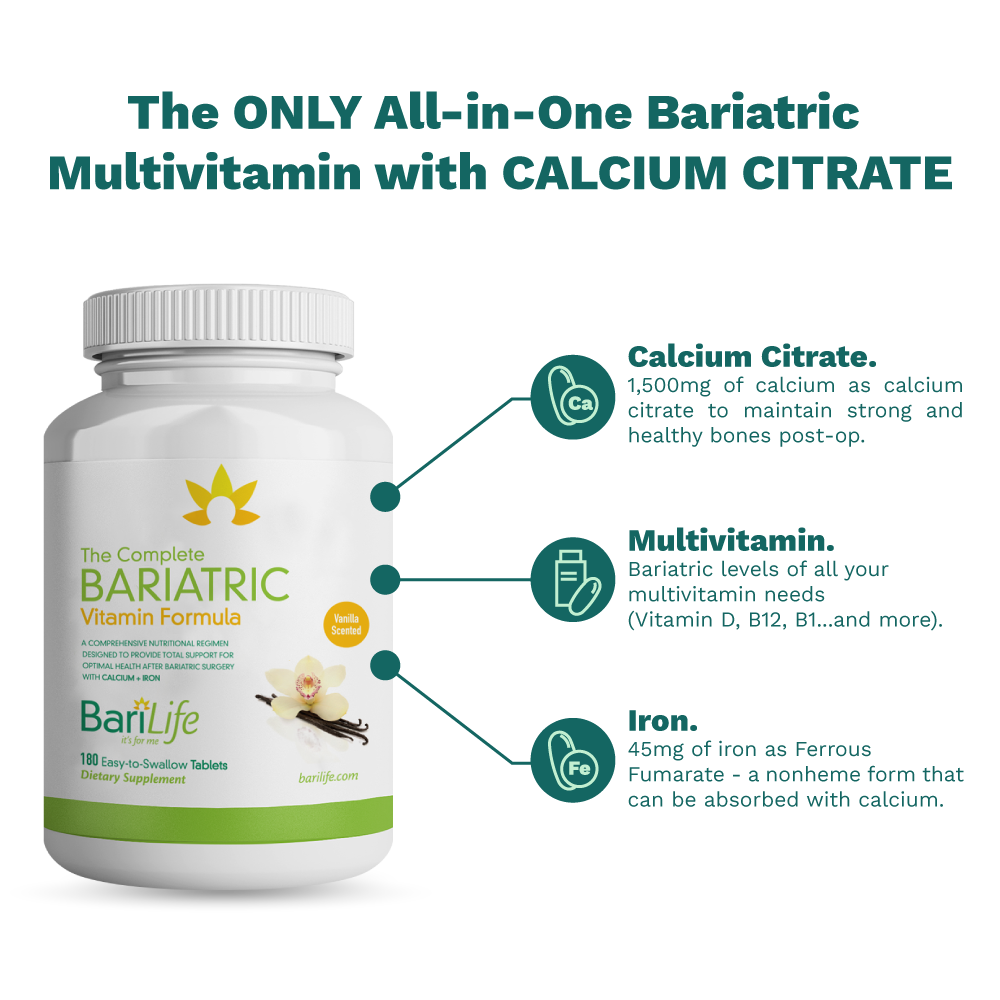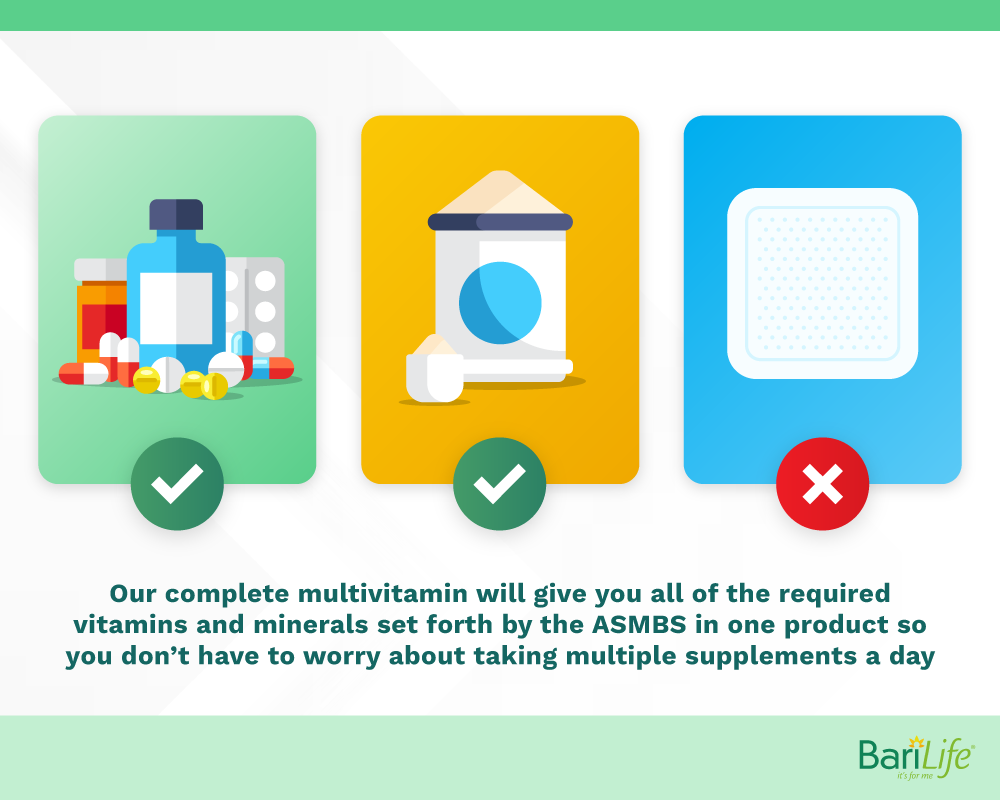After bariatric surgery, it’s vital to make sure you stay on track with taking your vitamins and minerals daily. This is because your digestive system is not the same as it was before surgery and you may not absorb nutrients as well as you used to. If you don’t like taking medicines, being told to take a daily supplement may seem daunting.
Therefore, you may have heard of a bariatric vitamin patch that you just stick on your skin and forget about until the end of the day. As the saying goes, if it looks too good to be true it probably is. And this is one of those cases. Read below to learn more about what bariatric vitamin patches are if they work, and why such patches may not be enough for bariatric surgery patients.
What is a vitamin patch?
A vitamin patch is a transdermal patch that a person sticks onto the skin instead of orally taking a vitamin or supplement. The claim is that such patches can release nutrients into the skin that will absorb into the bloodstream as well as tablets or capsules.

How do transdermal patches work?
Transdermal patches work by transmitting nutrients to the bloodstream by absorbing them into the skin. The nutrients need to pass through the outer layer of skin, or the epidermis, to reach the blood vessels, where they can flow to the bloodstream.
The idea is that since the nutrients bypass the digestive system, those with an altered gut, such as bariatric surgery patients, will be better able to absorb nutrients in this way.
Can vitamins and minerals actually be absorbed through the skin?
Some medicines like pain-relieving compounds or smoking cessation drugs have proven effective in transdermal delivery. However, early research shows that transdermal patches may not be able to provide adequate nutrient absorption for those who have had bariatric surgery. For example, a 2020 study looks at the effects of an iron pill versus an iron patch on iron levels. Study results show that after eight weeks of daily intake of an iron pill or iron patch, iron levels were higher in those taking an iron pill, while the patch users had no change in levels.

Also, a 2019 study of bariatric surgery patients looked at the effectiveness of multivitamin patches versus pills. Study results show that those using the patches have a greater risk of vitamin D deficiency as well as deficiency of various vitamins and minerals versus those taking pills.
Are vitamin patches good for bariatric patients?
Vitamin patches may seem like a good idea on paper. However, those who have had bariatric surgery require high amounts of certain nutrients. Therefore, bariatric vitamin patches may not absorb enough nutrients into the bloodstream to meet the daily needs of someone who has had bariatric surgery.
Those who have had bariatric surgery should work with their surgery team and primary care doctor to find a vitamin and mineral routine that will work best for them. Your medical team will be able to tell you if you have any low levels of certain nutrients that would warrant higher doses for a period of time. Also, if you have trouble swallowing pills or capsules, then your medical team may be able to help you find an adequate liquid nutrient regimen.

Have vitamin patches been studied?
There is not a large amount of research on vitamin patches, but there are some studies that were done to look at their potential effectiveness. Vital nutrients that bariatric patients need, such as vitamin D and iron, have shown to be inadequate form to help them meet daily nutrient needs.
Aside from this, experts suggest that certain forms of vitamins, such as the ascorbic acid form of vitamin C, is not very stable in its topical form. Therefore, opt instead for a tablet, capsule, or liquid form of your vitamins and minerals that you will be able to consume daily.
How to get the nutrients you need after bariatric surgery
The American Society of Metabolic and Bariatric Surgeries (ASMBS) requires that those who receive bariatric surgery adhere to the following guidelines to ensure they receive enough nutrients daily to stay healthy after surgery.
- Thiamine (vitamin B1): at least 12 milligrams (mg) daily
- Vitamin B12: between 350 and 500 micrograms (mcg) orally daily
- Folate (folic acid): 400 to 800 mcg daily; 800 to 1000 mcg daily for women of childbearing age
- Iron: at least 18 mg daily from a multivitamin; 45 to 60 mg of elemental iron daily for menstruating females and for those that have iron deficiency (as recommended by your doctor)
- Calcium: calcium citrate is the preferred form; between 1200 and 1500 mg daily; 1800 to 2400 mg daily for those who have duodenal switch surgery
- Vitamin D: daily dose will depend on your current vitamin D status and should be determined by your physician, but ASMBS does suggest 3000 IU daily for most bariatric surgery patients after surgery
- Vitamin A: 5000 to 10000 IU daily
- Vitamin E: around 15 mg daily
- Vitamin K: 90 to 120 mcg daily; 300 mcg daily for duodenal switch
- Zinc: Multivitamin containing between 100 and 200-percent of the recommended daily value (DV) equal to between 8 and 22 mg daily
- Copper: 1 to 2 mg daily

To make sure you receive the nutrients you need for optimal health after bariatric surgery, take a vitamin and mineral supplement that your doctor and surgery team approves. This supplement should contain enough of each of the vital nutrients recommended by the ASMBS, should be in a form that your body can absorb well, and should be one that is easy for you to ingest daily.
If you are able, try to take your daily calcium dosage in about two to three separate doses throughout the day to help your body absorb it better.
Should I buy bariatric vitamin patches?
Bariatric vitamin patches are not a reliable source of many vitamins and minerals that those who have had bariatric surgery need to help them recover and heal from surgery. This is because bariatric surgery patients require adequate vitamins and minerals daily for the rest of their lives which bariatric vitamin patches have not been shown to consistently provide.

If you’re having trouble finding a vitamin and mineral supplement routine that works for you, don’t hesitate to reach out to your bariatric doctor or surgery team for help.



What are your tips and tricks to post-bariatric success?